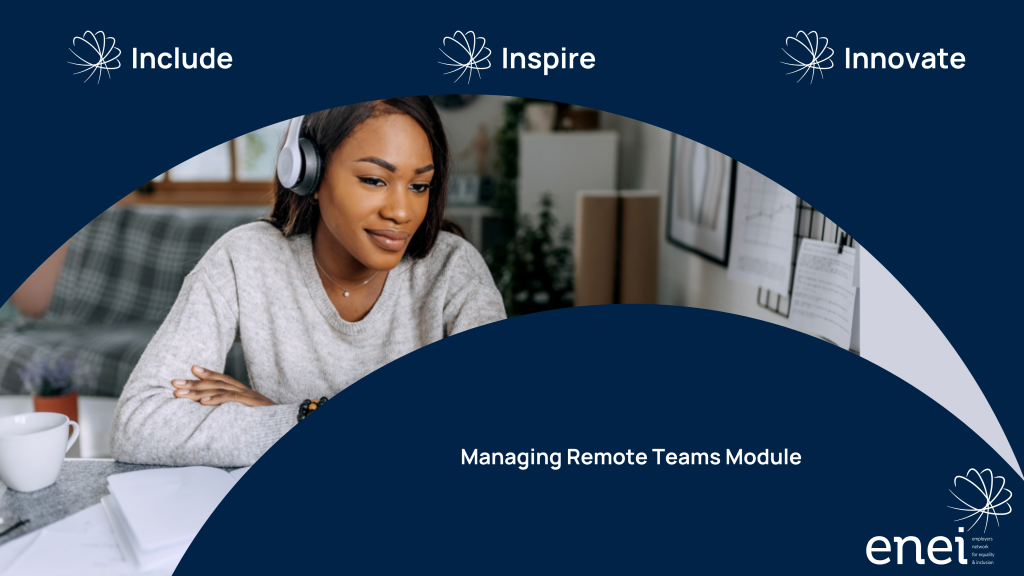

Following the COVID-19 pandemic, companies around the world had to quickly adapt and change their ways of working. One of the changes – which is here to stay – is remote working. More employees than ever seek flexibility in where, when, and how they work, focusing more of their efforts on acquiring a better work-life balance. When managing a remote team, you must ensure that you can look after your people and keep them connected, while delivering products or services to your customers. Managing remote employees is different from managing people from the office. As a leader, you need to put effort in to motivate your team, create a sense of belonging and achieve organisational goals and all of this will need to be achieved virtually.
Remote teams make use of communications and information technology to enable people to work in ways which best suit their needs without the traditional limitations of where and when tasks must be performed.
This e-learning course aims to guide you through successfully managing remote teams independently whether they work entirely or partially from different physical locations.
The course has been designed for people managers and will take approximately 30 minutes to complete.
Learning objectives:
- Introduction to flexible, agile, remote, and hybrid working plus an understanding of the main differences.
- Help you attain an understanding of what is involved in managing remote teams.
- Explain the challenges of remote working and how to overcome them.
- Discuss Human Resource related matters and considerations when managing remote teams.
- Identifying and recognising the potential impacts of mental and physical wellbeing on remote teams. This involves conducting risk assessments to ensure the health and safety of the employee.
- Helping you reflect on yourself as a remote leader using a checklist to ensure best practice is adhered to and action planning to assist with your role.
Talk to us about creating a tailor-made diversity, equality, and inclusion (DEI) programme to meet your organisation’s specific needs. Please contact your account manager to unlock any of our e-learning modules. If you’re not a member, please use the contact form below to get started.

How can we help?
Let’s discuss how we can support you in fostering a more inclusive and equitable workplace!
